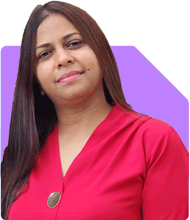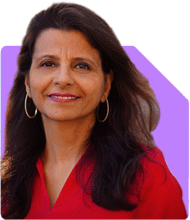70 and Active: What Exercises Should I Do (and Avoid)?
Nidhi Gupta | Answer |Ask -Follow
Physiotherapist - Answered on Feb 04, 2025
She founded the Merahki Holistic Wellness Company in 2011 and is the co-founder of Miraaya Holistic Growth Centre.
She has a bachelor's degree in physiotherapy from Sancheti Institute for Orthopaedics and Rehabilitation, Pune, and certifications in myofascial release, dry needling and craniosacral therapy from New York, San Francisco and Singapore.
She combines both Eastern and Western ways of healing. ... more

What are some of the best exercises for a 70 year old? What can they avoid?
Each person has different fitness levels. So the exercises prescribed depends on your body type, current fitness levels, any disease like blood pressure/diabetes you have.
Usually it is good to do walks for 40-45 minutes, if possible light strength and balance training would be good too. Yoga can help at any age to stay fitter as it works on the inner organs too.
There are so many 70 plus people who are so fit that they run marathons.
It would be good to take 1 session with a fitness trainer or physiotherapist who can understand the current health status and guide towards the exercises.
You may like to see similar questions and answers below
Komal Jethmalani |454 Answers |Ask -Follow
Dietician, Diabetes Expert - Answered on Jun 14, 2023
Nidhi Gupta | Answer |Ask -Follow
Physiotherapist - Answered on Feb 20, 2024
Dr Karthiyayini Mahadevan | Answer |Ask -Follow
General Physician - Answered on Mar 31, 2024
Dr Dipankar Dutta |1849 Answers |Ask -Follow
Tech Careers and Skill Development Expert - Answered on Feb 03, 2026
Anu Krishna |1765 Answers |Ask -Follow
Relationships Expert, Mind Coach - Answered on Feb 03, 2026
Anu Krishna |1765 Answers |Ask -Follow
Relationships Expert, Mind Coach - Answered on Feb 03, 2026
Anu Krishna |1765 Answers |Ask -Follow
Relationships Expert, Mind Coach - Answered on Feb 03, 2026
Mihir Tanna |1095 Answers |Ask -Follow
Tax Expert - Answered on Feb 03, 2026
Patrick Dsouza |1443 Answers |Ask -Follow
CAT, XAT, CMAT, CET Expert - Answered on Feb 03, 2026
Patrick Dsouza |1443 Answers |Ask -Follow
CAT, XAT, CMAT, CET Expert - Answered on Feb 03, 2026
Reetika Sharma |524 Answers |Ask -Follow
Financial Planner, MF and Insurance Expert - Answered on Feb 03, 2026
Reetika Sharma |524 Answers |Ask -Follow
Financial Planner, MF and Insurance Expert - Answered on Feb 03, 2026
Reetika Sharma |524 Answers |Ask -Follow
Financial Planner, MF and Insurance Expert - Answered on Feb 03, 2026




























